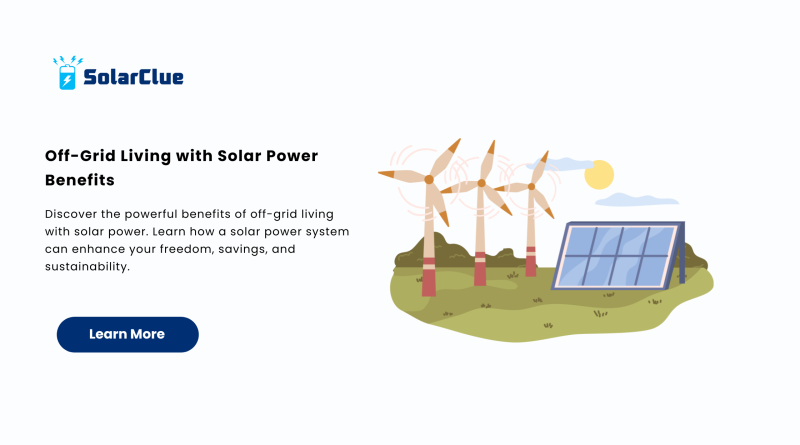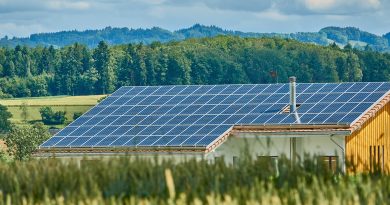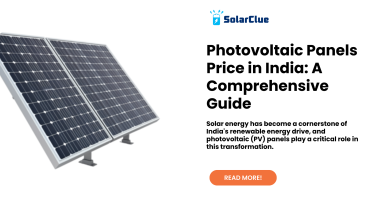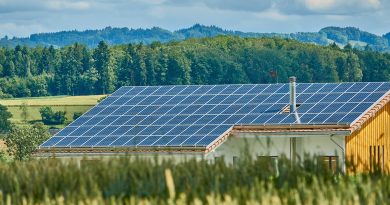Off-Grid Living with Solar Power Benefits
In today’s fast-paced, tech-driven world, more people are looking to reclaim control over their lives—and their energy. Off-grid living with solar power is emerging as a powerful, sustainable solution for those who want to break free from the constraints of the traditional electricity grid. Whether driven by rising electricity costs, a desire for eco-friendly living, or the need for energy resilience, this lifestyle is not only achievable but also rewarding. With the help of a well-designed solar power system, you can harness solar energy to live independently, sustainably, and with greater peace of mind.
Table of Contents
- 1 What is Off-Grid Living?
- 2 Why Choose Off-Grid Solar Power?
- 3 How Solar Energy Works for Off-Grid Homes
- 4 Top Benefits of Off-Grid Living with Solar Power
- 5 4. Low Maintenance and Long Lifespan
- 6 Choosing the Right Solar Power System
- 7 Battery Storage: A Key Component
- 8 Integrating Smart Technology
- 9 Solar Incentives and Government Support
- 10 Maintenance Tips for Longevity
- 11 Off-Grid Solar vs. Grid-Tied Systems
- 12 Common Myths About Off-Grid Solar
- 13 Real-Life Success Stories
- 14 Getting Started with Off-Grid Solar
- 15 Final Thoughts
What is Off-Grid Living?
Off-grid living means disconnecting from the traditional electricity grid and producing your own energy, usually through solar power. It’s a lifestyle that emphasizes independence, sustainability, and resilience, especially in rural or remote areas where utility access may be limited.
Why Choose Off-Grid Solar Power?
The primary reason many people opt for off-grid solar power is the freedom it provides. You are no longer tied to rising utility costs or dependent on unstable power sources. Instead, with a solar power system, you harness clean, renewable energy directly from the sun.
How Solar Energy Works for Off-Grid Homes
A typical solar power system for off-grid living includes:
- Solar panels to capture sunlight
- A charge controller to regulate energy flow
- Batteries to store power for nighttime or cloudy days
- An inverter to convert stored energy into usable electricity This setup enables you to power everything from lights to refrigerators without relying on external grids.
Top Benefits of Off-Grid Living with Solar Power
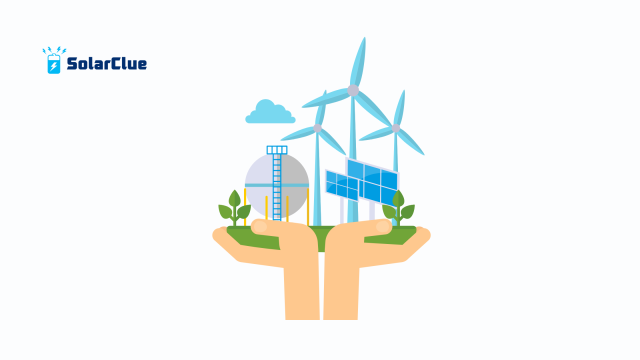
1. Energy Independence
By generating your own solar energy, you’re free from blackouts, price hikes, and grid failures. It gives you complete control over your energy supply.
2. Cost Savings Over Time
While initial installation may seem high, solar power quickly pays for itself through long-term savings. There are minimal operating costs and no monthly utility bills.
3. Sustainable and Eco-Friendly
Living off-grid with solar drastically reduces your carbon footprint. It’s a major step towards sustainable living by using a clean, renewable source.
4. Low Maintenance and Long Lifespan
Solar panels require minimal upkeep and can last 25 years or more. Modern solar power systems are efficient, durable, and reliable.
5. Versatility in Location
From mountains to forests, solar energy allows you to live anywhere. Remote locations no longer mean a compromise on modern conveniences.
6. Boost Property Value
Homes equipped with solar power are increasingly desirable. They often have higher resale values due to energy efficiency and lower operating costs.
7. Quiet Operation
Unlike fuel-powered generators, solar power systems operate silently. This is especially valuable in peaceful, off-grid environments.
8. Scalable for Any Need
Whether you’re powering a small cabin or a full-size home, solar energy systems are highly scalable and customizable.
Choosing the Right Solar Power System
When planning your off-grid setup, consider energy needs, climate, budget, and available space. Professional installation ensures your solar panel system is optimized for performance and safety.
Battery Storage: A Key Component
Without batteries, an off-grid solar setup would fail at night or during cloudy days. Choosing the right battery capacity is crucial to ensure uninterrupted power.
Integrating Smart Technology
Modern solar power systems can be paired with smart technology, enabling remote monitoring and efficient energy management.
Solar Incentives and Government Support
Many regions offer tax credits, subsidies, and grants for solar panel installations, helping reduce upfront costs. Be sure to explore available options.
Maintenance Tips for Longevity
Keep your solar panels clean, check wiring regularly, and monitor battery health to ensure your solar energy system runs smoothly.
Off-Grid Solar vs. Grid-Tied Systems
While both use solar power, grid-tied systems still rely on the electrical grid, whereas off-grid systems provide complete autonomy and reliability.
Common Myths About Off-Grid Solar
- Myth: Off-grid solar is only for survivalists
- Reality: Many families are now adopting this lifestyle for environmental and financial reasons.
- Myth: Solar power doesn’t work in cloudy climates
- Reality: Panels still collect energy, albeit at reduced efficiency.
Real-Life Success Stories
Across India and globally, more households are thriving with off-grid solar energy. From eco-resorts in Kerala to rural villages in Rajasthan, solar is transforming lives.
Getting Started with Off-Grid Solar
Start with an energy audit to assess your needs. Choose a reputable provider and ensure you understand your setup’s components and capabilities.
Final Thoughts
Off-grid living with solar power isn’t just a trend—it’s a lifestyle choice that brings freedom, sustainability, and economic advantages. Whether you’re escaping the grid or embracing eco-conscious living, a solar power system empowers your journey.
Ready to take the first step toward energy independence? Visit us now at solarclue.com and explore in-depth guides and resources on blog.solarclue.com to power up your off-grid future with confidence.
FAQs
1. Can I go completely off-grid with solar power?
Yes, with the right solar power system and adequate battery storage, you can live fully off-grid.
2. How much does an off-grid solar setup cost?
Costs vary based on energy needs and system size, but prices are decreasing due to innovation and government support.
3. Are solar panels effective in all weather?
Yes, solar panels work in cloudy and cold weather, though efficiency may be lower than in direct sunlight.
4. What maintenance do off-grid solar systems require?
Minimal cleaning, regular inspections, and battery checks ensure optimal performance.
5. Can I expand my system later?
Absolutely! Most solar energy systems are designed to be scalable as your energy needs grow.

